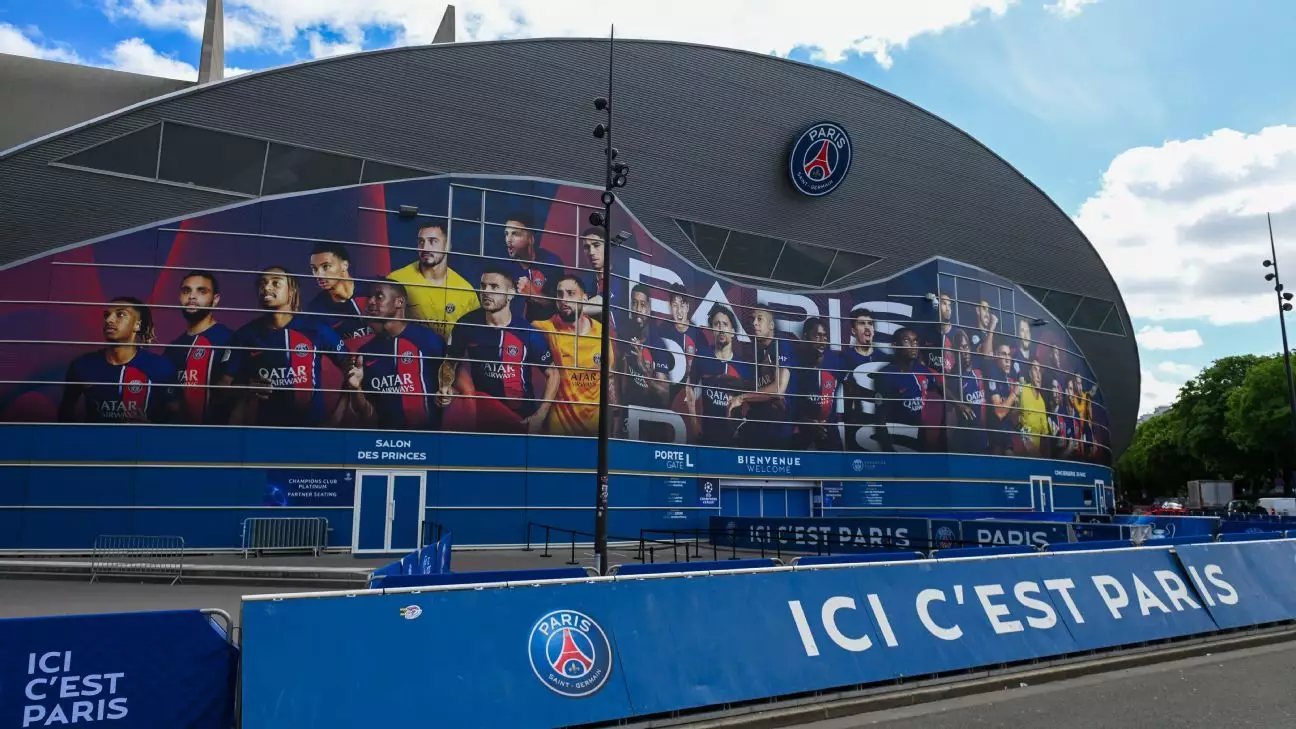In recent times, there has been a noticeable cooling of interest from Qatari investment vehicles, particularly the Qatar Investment Authority (QIA) and Qatar Sports Investments (QSI), in the French market. This development signals a significant shift in strategy from these entities that previously poured capital into French entities, most notably Paris Saint-Germain (PSG), since the football club’s acquisition in 2011. Valued at approximately €500 billion, QIA has long been a prominent player in the international investment landscape, but sources indicate that the entity is reconsidering its commitment to France, which raises questions about the motivations behind this strategic pivot.
The decline in investments from QIA and QSI isn’t a response to immediate scandal but appears to have been a gradual change over the past year. Some might speculate that recent controversies, such as the ongoing investigation into PSG president Nasser Al-Khelaifi, may have influenced this retreat. However, insiders have clarified that the inquiries surrounding Al-Khelaifi—centering on allegations involving potential corruption and abuse of power—are disconnected from his role at PSG. This investigation, which entails serious allegations but remains in the preliminary stages, illustrates the mounting scrutiny confronting Qatari officials in France.
Beyond the controversies surrounding specific individuals, the broader landscape of local media relations and political pressures seems to have significantly impacted Qatari investment sentiment. Reports suggest that Qatari officials have grown increasingly weary of what they perceive as unfair treatment from French journalists, governmental entities, and the judicial system. It’s not uncommon for investors to experience frustration in markets where the relationship between the state and business is particularly fraught with tension, and QIA appears no exception.
This dissatisfaction is prompting a reassessment of QIA’s extensive investments in France, notably its portfolio of properties, hotels, and media enterprises. Industry experts speculate that QIA’s decision to divest part of its French portfolio reflects a broader desire to mitigate risks associated with potential political backlash or unfavorable public perception. Such a strategy underscores the tenuous balance that foreign investors must maintain while navigating the intricacies of national sentiment and market dynamics.
The partnership between QSI and PSG was initially marked by an aggressive investment strategy, introducing marquee talent from global football to the French club. High-profile players such as Neymar and Lionel Messi were brought in with the hope of achieving the ultimate footballing ambition—winning the UEFA Champions League. However, this objective has eluded QSI, leading to frustration and questioning of their operational methods within the French Ligue 1 context. Despite securing 10 Ligue 1 titles and other domestic accolades within a relatively short timeframe, the overarching goal of European dominance remains unachieved, igniting discussions about the effectiveness of their current approach.
As they reevaluate their strategy, QSI is exploring fresh avenues for investment and partnerships. For instance, the minority stake acquired by American investment fund Arctos, in collaboration with NBA superstar Kevin Durant, highlights a notable shift in strategy aimed at attracting external investment, thereby diversifying their funding sources. This pivot not only reflects a desire for financial sustainability but also an effort to unite capital inflows while retaining sufficient control over club activities.
The various business arms associated with Qatari investments, such as beIN Media Group, are also recalibrating their strategies specifically concerning media rights. Given the ongoing discussions with stakeholders in Saudi Arabia and an observable reduction in overall spending on French media rights, the group’s focus appears to be shifting towards maximizing investments elsewhere. This reflects a growing recognition of the dynamic and sometimes capricious nature of media investments in an increasingly competitive environment.
The gradual withdrawal of Qatari investments from France encapsulates a blend of strategic reassessment, political realities, and the challenges of navigating public scrutiny. As Qatar’s investment vehicles reassess their position and seek new opportunities within and beyond the French borders, it will be essential to monitor how these developments influence both the local market and the broader international investment landscape. The future implications of these shifts remain to be seen, but they undoubtedly signal a notable turning point in the narrative of Qatari investments in Europe.


Leave a Reply